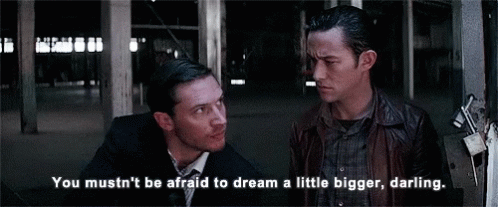Crypto makes new value coordination mechanisms possible. But instead of being creative with new tech, we’ve fallen into using the same old coordination mechanisms with crypto tacked on as an extra feature.
The way that humans have coordinated value to get things done for thousands of years boils down to a few tried-and-true steps:
-
A group of people decides that there is something they want to do. They all agree to contribute funds toward that thing.
-
Funds are pooled, and a smaller group of people within that larger group are assigned the responsibility of managing the funds.
-
That smaller group of people does the hard work of managing what actions the group will undertake, finding people to complete those actions, and using the group’s funds to pay for services.
-
The other members of the group have varying degrees of oversight over the small group managing funds and can replace them when they do not perform their duties adequately.
The steps above are very generic but generally describe human organizations from those as small as a neighborhood HOA to those as big as national governments. It is the natural method of coordination humans adopt whenever a group has shared tasks to complete.
Most DAO governance falls under the description above. A group of people pools their cryptocurrency and a smaller group amongst that larger group manages the funds with some sort of multisig wallet. Anyone that is a member of the DAO can propose that funds be used for something, but the actual payment and management of funds is completed by the inner circle.
In and of itself, this structure is not bad. Many DAOs have accomplished great things. But is this really innovation? At the end of the day, we are using the same method of organization as we have for thousands of years, but using cryptocurrency instead of some other currency for the underlying value transfer. Some things are made slightly easier thanks to the transparency of on-chain voting and internet-native structure, but the coordination method remains the same.
So let’s try something new

Let’s go over the model above once again. There are three types of actors:
-
People that want to get something done and contribute funds toward it
-
“Elites” amongst that group that manage the funds
-
People that actually complete whatever tasks the group wants done and get paid to do so
Good model, but the “elites” in the middle feel a bit unnecessary. What if you could simplify things to:
-
People that want to get something done and contribute funds toward it
-
People that actually complete whatever tasks the group wants done and get paid to do so
Before cryptocurrency, this wasn’t possible. Normal money isn’t programmable. Once someone contributes USD to a fund, they lose all control over it. Someone else needs to manage it and keep track of the specific donations amongst all other contributions. It’s the nature of the beast. Elites are necessary.
Crypto is different. It’s seamless to track who has contributed what to any given address on a blockchain. This means we should be able to have organizations where communal funds are controlled directly by the people who contributed.
But there are other problems. How does a decentralized group of people know the task they wanted to get done got done? Who gathers the evidence? Who triggers the voting period to release funds? What platform is voting done on? Who figures out what address those funds need to be sent to? Who’s responsible for figuring out how much to send? And on and on.
Things get messy at the phase of DAOs where taking action is needed. So we lean back on centralized mechanisms to abstract that messiness away. A few people manage a multisig, we put a lot of trust in those people, and we call it good.
But this strategy completely fails at decentralizing the most important thing DAOs should be doing: taking action to get things done.
DAO expert Spencer Graham has a fantastic blog post on this topic where he makes these crucial points:
-
“The common misconception that governance is primarily about decision-making is wrong, outdated, and dangerous. The goal of governance is to DO things. Governance is about taking ACTION. Decision-making is important, but it is just one aspect of taking action.”
-
“If you ignore the actual goal of governance – taking action – you're liable to create a system that is exposed to capture, just like our broken governance systems in place throughout society today.”
-
“Until very recently, it was literally impossible for agents in a network to collectively execute an action using the network’s shared resources. Instead, many legacy governance systems rely on trusting individual people to execute actions on behalf of the many. ‘Governance’ came to refer to the process for deciding which action to trust a single agent to execute. But we no longer live in that world. Thanks to blockchains and smart contracts, for the first time in human history we have the ability to distribute executive power across multiple agents.”
-
“Our new ability to design governance systems that actually cover the full breadth of governance is a profoundly important shift. We may look back on it as one of the most important advances in human history. Let's use these new tools to their full potential. Let's build real DAOs.”
With all this in mind, we are left with a single core question: How do we make it easy for a decentralized group of people to incentivize the completion of an action without a centralized middleman confirming/executing the action?
I believe that finding solutions to this question is one of the most important research spaces in crypto today. And I think I have an idea of what one possible solution could look like. Want to learn more? Check out:
Want to collab? Find me on Twitter or Telegram @kaspotz or Farcaster @kenny.